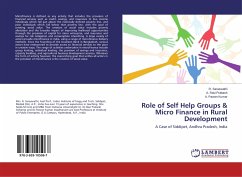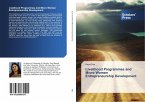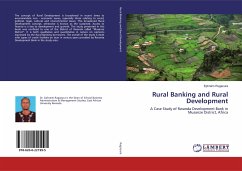The need for micro finance in India has arisen due to failure of formal banking system in meeting the credit needs of millions of rural and urban people, who constitute poverty or near poverty groups in the country. The banking sector always demands high discipline in collateral security, procedures, impracticable, repayment schedule, high transaction cost, emanating from the low scale of operation, high turnover of clients. Hence they failed to meet the financing need of those struggling to stay alive. It is possible only by making the strategies to increase the scope of activities of micro finance by including food, credit, health, consumption loans, and skill up gradation and education loans. Micro finance is accessing financial services in an informally-formal route, in a flexible, responsive and sensitive manner. Micro finance aims at assisting communities of the economically excluded to achieve greater levels of asset creation and income security at the household and community level.
Bitte wählen Sie Ihr Anliegen aus.
Rechnungen
Retourenschein anfordern
Bestellstatus
Storno








